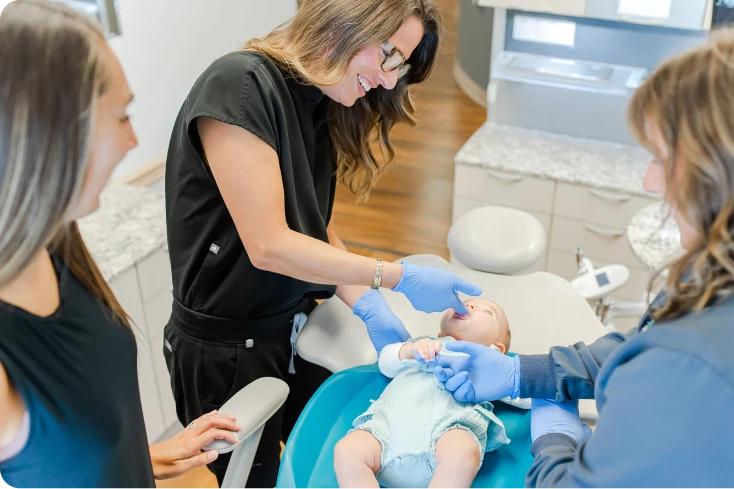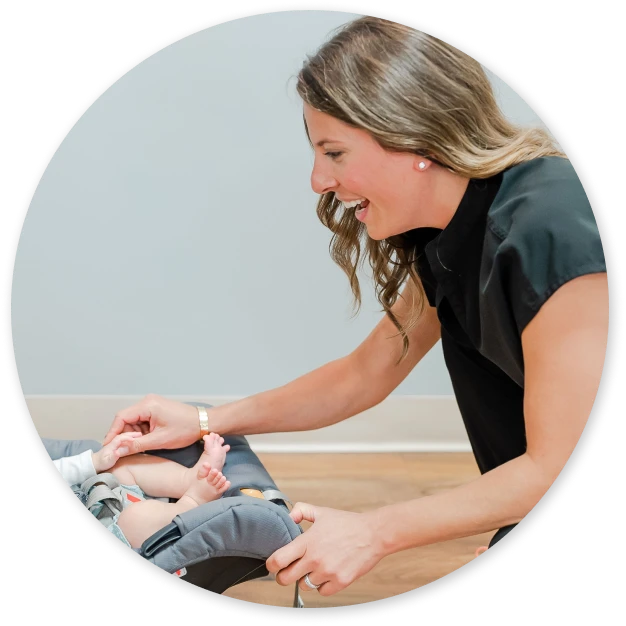At Breathe For Foundational Development, we understand that Restricted Tethered Oral Tissues (TOTs), such as tongue- and lip-ties, can significantly impact an infant’s ability to properly feed, and swallow properly. These conditions, where the frenum (the connective tissue under the tongue or lips) is abnormally tight or short, can interfere with an infant’s ability to nurse or properly use a bottle, sleep well, and grow appropriately.
Healthy tongue, lip, and cheek function is essential to proper growth and development of the face and overall craniofacial complex. Proper lip seal and pressure from the tongue during swallowing are instrumental in growing and shaping the jaws. Healthy, developed jaws provide a foundation for face and airway development. So while healthy nursing and feeding is important for nutrition, it is also crucial for proper growth and development.

Recognizing the right symptoms early can lead to more effective interventions. Dr. Buehler and her team employ a detailed clinical examination, which often includes a fascial evaluation to assess how the oral tissues affect the entire body. This thorough diagnostic process ensures that every symptom is understood in context, not just treated in isolation. Dr. Buehler likes to teach that everyone has a string of tissue (frenum) under their lip and under their tongue.
The mere presence of this tissue does not indicate a restriction. A thorough, clinical, in-office evaluation is necessary to properly diagnose a restriction of this tissue. Most patients will benefit from seeking additional collaborative care from our list of skilled providers. Dr. Buehler is very clear that she is only a piece of the puzzle; the best care is always a result of a team-based approach!

